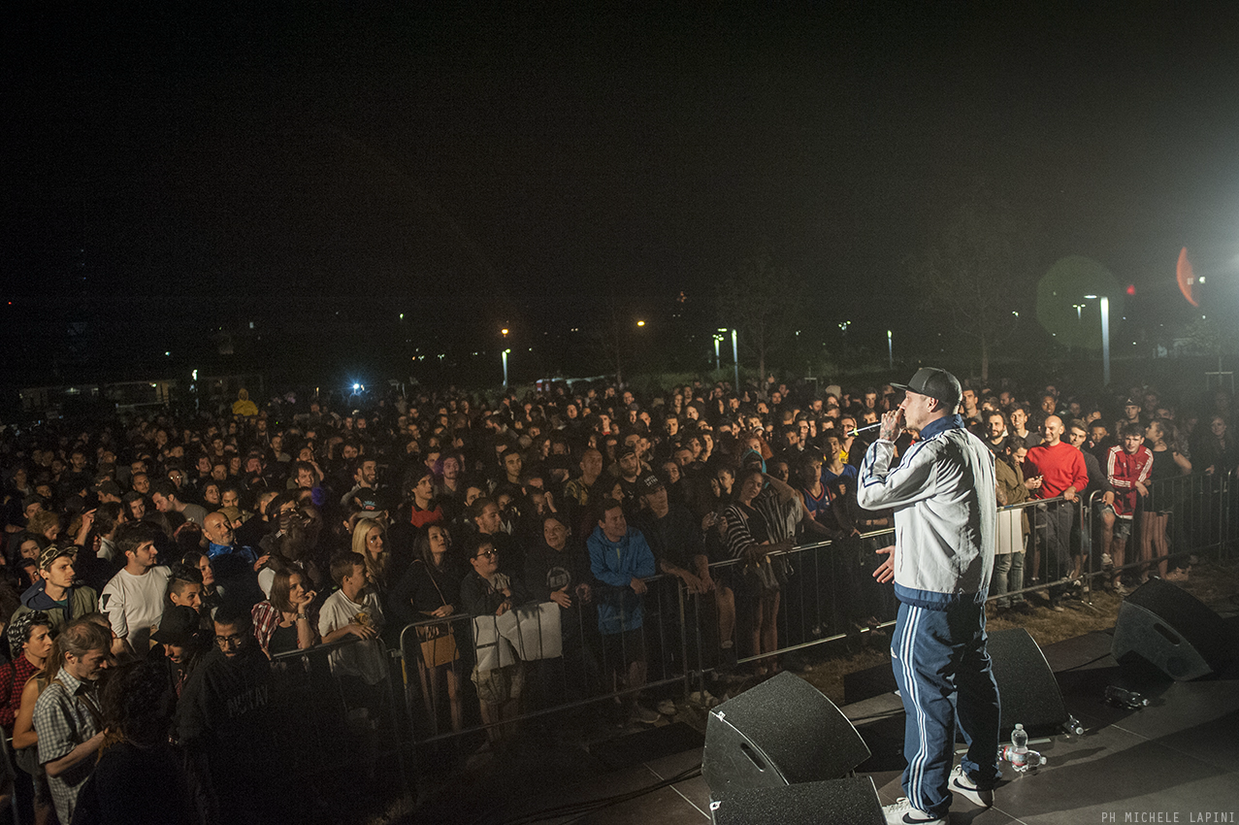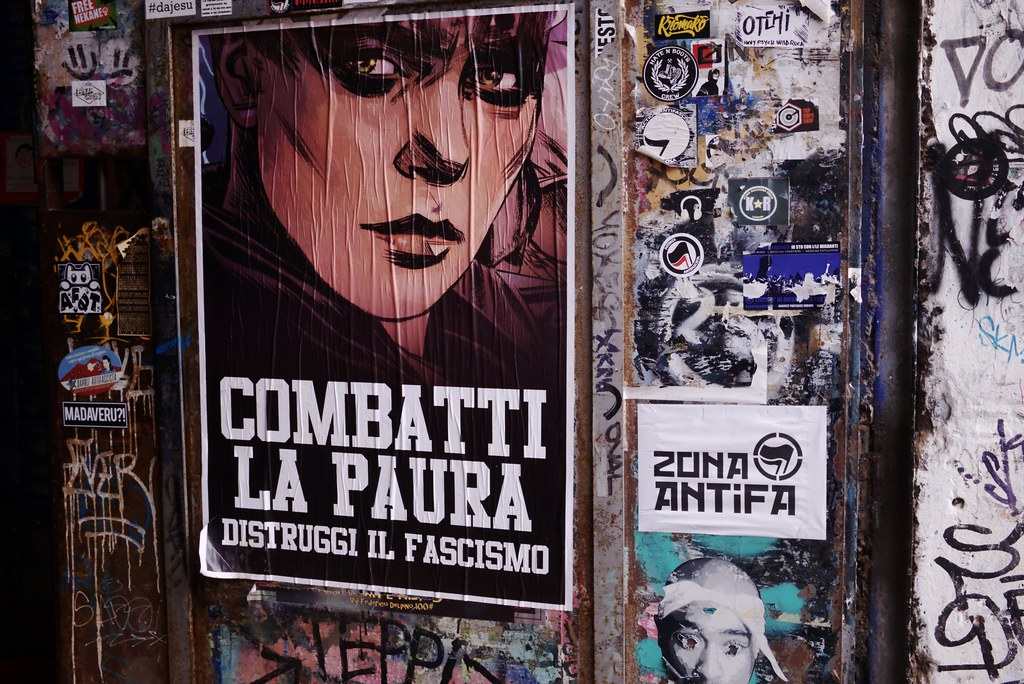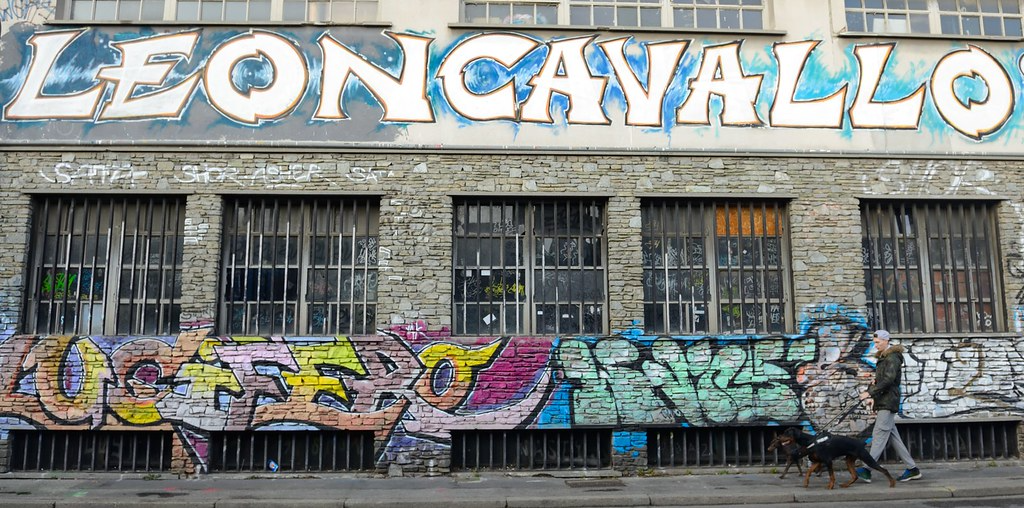Thanks to self-managed social centers, Italians have found a space to enjoy concerts, dinners, movie nights and more
Concert at XM24. Zeroincondotta. CC BY-NC-SA 2.0
Since the 1970s, self-managed social centers have offered a place for Italians to gather as a community. Usually located on the outskirts of cities, these centers are established and operated entirely by locals. They are often formed as a direct response to social issues such as lack of affordable housing, drug addiction and marginalization. Members of the community occupy buildings that have fallen into disuse, such as schools, apartment complexes, forts and even farms.
CSOA Forte Prenestino. boklm. CC0 1.0
The legal status of these centers varies, and some face eviction by authorities despite their value to the community. Many of the centers take a strong political stance, defining themselves as anti-fascist, anti-sexist, anti-racist and anti-capitalist. These spaces serve as important refuges for members of the community and a place for diverse groups of people to meet and collaborate.
Concert at XM24. Zeroincondotta. CC BY-NC-SA 2.0
One of the most famous of these self-managed social centers was XM24, or ExMarket, of Bologna. It emerged during a period of repression as the mayor of the city engaged in a campaign against social housing and squatter movements. The center established itself in several abandoned spaces, including a former fruit and vegetable market from which it took its name. It offered a number of services to the community, including a cafe, a bike shop, a vegetable garden, live concerts, a gym, and a dormitory for migrants, refugees and the houseless. It was run by a general assembly of local volunteers.
XM24 Graffiti, Against those who close our spaces, let’s ignite our rage. Zeroincondotta. CC BY-NC-SA 2.0
In 2013, XM24 was able to reach an agreement with the local government, allowing the center to operate independently and utilize the abandoned spaces. However, the agreement expired in 2017. Members of the community attempted to protest the eviction in a struggle with the city that lasted two years, but in 2019 the space was evicted and bulldozers arrived to clear it out. As of 2024, the center no longer exists.
Leoncavallo Spazio Pubblico Autogestito. Robertino Radovix. CC BY-NC-SA 2.0
XM24 was not the only self-managed center to be evicted by the government, but many centers have still found a way to thrive. The Leoncavallo Spazio Pubblico Autogestito of Milan still offers jazz concerts, stand-up comedy, dinners, English lessons and more to locals. It is currently open Thursdays through Sundays in the afternoon and evening, although they face eviction on June 18th, 2024 by the bailiff and the property’s lawyers.
Daniele Sepe & Aldolà Chivalà. L’Asilo. CC BY-NC-SA 2.0
Je So’ Pazzo is a self-managed center in the Marterdei district on the outskirts of the city of Naples in a former asylum for the criminally insane. When it was occupied in 2015, it was managed by the Penitentiary Police. Volunteers collaborate with local associations to house, collect clothing for and distribute meals to the houseless. Their services include medical clinics, psychiatric support and migrant aid. They also offer a number of recreational activities, such as Naples’ only indoor rock climbing wall, a football pitch, a gym, a theater, a bar, social dinners, concerts, and so much more. It is still active and open 24 hours a day, six days a week. Like most places in Italy, it is closed on Sundays.
Concert at CPA, Firenze. GothEric. CC BY-SA 2.0
The Centro Popolare Autogestito Firenze Sud and LaPolveriera SpazioComune are both self-managed centers located in Florence. Like other social centers, they offer a variety of recreational activities during the days and the evenings, such as ceramics classes and concerts, as well as important social services for the community.
Whether you are looking to participate in a ukulele workshop, enjoy a dinner and movie, discuss politics with local Italians, or let loose at a heavy metal concert, self-managed social centers are the perfect place.
Rebecca Pitcairn
Rebecca studies Italian Language and Literature, Classical Civilizations, and English Writing at the University of Pittsburgh. She hopes to one day attain a PhD in Classical Archeology. She is passionate about feminism and climate justice. She enjoys reading, playing the lyre, and longboarding in her free time.








